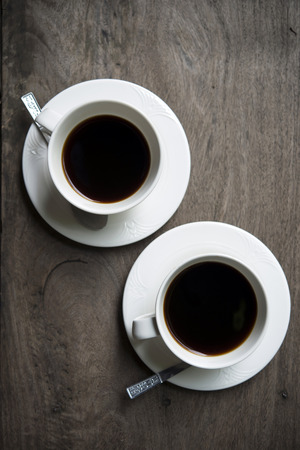Introduction: The Rise of Decaf in American Coffee Culture
Coffee has long been woven into the fabric of American daily life, fueling early mornings and social gatherings alike. Yet in recent years, a noticeable shift has emerged within the nation’s coffee culture: more Americans are reaching for decaffeinated options. Once dismissed as a bland alternative for those who couldn’t handle caffeine, decaf coffee is now experiencing a renaissance. This newfound popularity stems not only from changing health perspectives but also from evolving consumer preferences and innovations in roasting techniques that preserve flavor without the buzz. As decaf sheds its outdated stigma, it is gaining traction among health-conscious millennials, busy professionals, and even specialty coffee aficionados. Exploring why Americans are increasingly choosing decaf reveals much about broader trends in wellness, taste, and lifestyle priorities across the United States.
Health Awareness and Changing Lifestyles
In recent years, a growing focus on personal wellness and preventive health has significantly shaped American consumer habits, especially in the beverage sector. As scientific research continues to illuminate the potential risks and benefits associated with caffeine consumption, many Americans are reconsidering their daily coffee rituals. Concerns about sleep quality, anxiety, heart health, and overall well-being have prompted a shift towards decaffeinated coffee options.
Modern lifestyles are increasingly characterized by high stress and demanding schedules, making quality sleep and mental clarity top priorities for many individuals. Health-conscious consumers are seeking ways to reduce jitteriness, insomnia, and digestive discomfort—common complaints linked to excessive caffeine intake. The rise of mindfulness practices and holistic health trends has further encouraged people to be more intentional about what they put into their bodies.
| Wellness Trend | Impact on Coffee Consumption |
|---|---|
| Sleep Hygiene | More consumers avoid caffeine in the afternoon/evening, opting for decaf to protect sleep cycles. |
| Mental Health Awareness | Decaf is chosen to reduce anxiety or nervousness triggered by caffeine. |
| Heart Health Focus | Individuals with blood pressure concerns often switch to decaf based on physician recommendations. |
| Digestive Wellness | Sensitive stomachs drive consumers toward gentler decaf alternatives. |
The popularity of fitness routines, plant-based diets, and low-stimulation lifestyles also influences beverage choices. Many Americans now view decaf coffee as an integral part of a balanced lifestyle that supports energy without overstimulation. With these shifts, it is clear that evolving health values and changing daily routines are major factors propelling the growth of decaf in the U.S. market.
![]()
3. Consumer Behavior: Whos Choosing Decaf and Why
Understanding the shift toward decaf coffee in America requires a closer look at the demographic trends, personal motivations, and daily habits shaping this movement. Recent market research reveals that decaf is not just a choice for older adults or those with health concerns—its gaining traction across a broader spectrum of consumers.
Demographic Patterns: A Diverse Decaf Audience
While baby boomers remain significant consumers of decaffeinated coffee due to health considerations like hypertension or sleep quality, younger generations are increasingly joining the trend. Millennials and Gen Z, often associated with specialty coffee culture, are embracing decaf as part of a holistic approach to wellness. These younger consumers are more likely to seek out high-quality, ethically sourced decaf options at cafes and grocery stores, reflecting their values around sustainability and mindful consumption.
Motivations Behind the Switch
The reasons Americans choose decaf are multifaceted. Health is a primary driver—many individuals report sensitivity to caffeine, experiencing side effects such as anxiety, insomnia, or digestive discomfort. Others cite lifestyle factors; for instance, enjoying coffee in the afternoon or evening without disrupting sleep patterns. Additionally, an increased focus on mental health and work-life balance has led some to moderate their caffeine intake while still savoring the ritual and social aspects of coffee drinking.
Habits That Reflect New Priorities
Decaf drinkers tend to be intentional about their choices. They often select specialty blends that offer robust flavor without the buzz, indicating a desire for both taste and well-being. Many incorporate decaf into routines that prioritize self-care—such as pairing a cup with meditation or using it as a gentle way to wind down after work. This shift is also evident in workplaces and hospitality settings, where offering quality decaf options is becoming standard practice to accommodate evolving preferences.
Overall, consumer behavior around decaf coffee in America highlights a blend of tradition and innovation. Whether driven by age-related health needs or a proactive approach to wellness among younger adults, choosing decaf is increasingly seen as a positive lifestyle decision grounded in science, taste, and personal balance.
4. Quality Improvements and Innovations in Decaf Coffee
For many years, decaf coffee carried a reputation for being bland or inferior to its caffeinated counterpart. However, recent technological advancements and flavor innovations have revolutionized the decaf experience, directly impacting why more Americans are choosing decaf. The modern decaf market reflects a commitment to quality and taste, attracting discerning coffee drinkers who want both health benefits and a satisfying cup.
Technological Advances in Decaffeination
Traditional methods of removing caffeine often relied on chemical solvents, which could strip away desirable flavors along with the caffeine. Today, newer processes prioritize both safety and flavor retention. Techniques such as the Swiss Water Process and carbon dioxide (CO2) extraction minimize chemical residues while preserving the natural character of coffee beans.
| Decaffeination Method | Main Benefit | Flavor Impact |
|---|---|---|
| Swiss Water Process | Chemical-free | Retains origin flavors |
| CO2 Extraction | Efficient & safe | Mild impact on taste |
| Direct Solvent Method | Cost-effective | Slightly muted flavors |
The Rise of Specialty Decaf Roasts
Coffee roasters across America are now investing in high-quality beans specifically for decaf production. Instead of treating decaf as an afterthought, they’re developing unique blends and single-origin offerings that highlight complex flavors—fruity, nutty, or chocolatey notes—mirroring what’s available in regular coffee menus. This shift has made decaf appealing to specialty coffee enthusiasts who previously avoided it due to lackluster options.
Flavor Enhancements & Consumer Response
The improvement in flavor profiles is transforming public perception. Blind taste tests increasingly show that consumers can’t distinguish between well-made decaf and traditional brews. Cafés and major chains now feature decaf espresso, cold brew, and even ready-to-drink beverages. These choices give American consumers greater flexibility without compromising their sensory experience or wellness goals.
Key Takeaway for U.S. Coffee Drinkers
The combination of advanced processing techniques and artisanal roasting means decaf no longer requires a trade-off between health consciousness and taste enjoyment. As quality continues to rise, so does demand—helping to explain why more Americans are embracing decaf as part of their daily routine.
5. Market Trends: Sales, Availability, and Brand Strategies
Recent years have seen a significant shift in the U.S. coffee market as decaf sales continue to rise. According to industry data from major market research firms, decaf coffee sales in America have grown steadily, outpacing some segments of regular coffee. This uptick is not only driven by health-conscious consumers but also by evolving taste preferences and greater awareness of caffeine’s potential side effects.
Wider Availability and Product Innovation
Supermarkets, specialty coffee shops, and even major chains like Starbucks and Dunkin’ are expanding their decaf selections. In addition to classic drip coffee, Americans now have access to a variety of decaf options including cold brew, espresso pods, instant blends, and specialty single-origin varieties. The surge in plant-based milk alternatives and organic offerings has also extended into the decaf segment, appealing to an even broader demographic.
Brand Strategies Responding to Demand
Coffee brands are responding quickly to these changing consumer behaviors. Many are investing in improved decaffeination processes that preserve flavor complexity, such as the Swiss Water Process or CO2 extraction, which appeal to discerning coffee drinkers who want the full experience without the jitters. Marketing campaigns increasingly highlight both taste and wellness aspects, with messaging focused on “clean,” “chemical-free,” or “naturally processed” decaf options. National brands are collaborating with local roasters and launching limited-edition decaf blends to tap into regional preferences.
Decaf’s Place in American Coffee Culture
As more Americans seek balance between enjoying coffee rituals and supporting their health goals, decaf is being rebranded from an afterthought to a central part of the modern coffee experience. The combination of increased availability, innovative product development, and targeted branding suggests that decaf’s popularity is more than just a passing trend—it’s a reflection of shifting priorities in American lifestyles.
6. Cultural Shifts and Social Acceptance
Decaf coffee has long been the subject of jokes and gentle ribbing in American culture. For decades, it was often associated with older adults, health concerns, or a perceived lack of “real” coffee enthusiasm. Phrases like “death before decaf” and memes poking fun at decaf drinkers reflected a broader stigma—decaf simply wasn’t considered cool. However, recent years have seen a significant cultural shift. As more Americans prioritize wellness, mental health, and better sleep, choosing decaf is increasingly viewed as a smart, self-aware decision rather than a compromise.
The rise of specialty coffee culture has also played a crucial role in changing social attitudes. Coffee shops across the country now offer high-quality decaf options that taste just as rich and complex as their caffeinated counterparts. This move toward premium decaf has helped break down old stereotypes and make decaf socially acceptable—even trendy. Millennials and Gen Z consumers, who are more likely to value customization and personal choice, have especially embraced this new narrative.
Social media platforms further amplify these evolving attitudes. Influencers and wellness advocates openly share their reasons for choosing decaf—whether it’s managing anxiety, improving sleep hygiene, or reducing caffeine dependence—sparking conversations that normalize and validate the choice. As a result, ordering decaf at a café no longer carries the same social baggage; instead, it signals a thoughtful approach to health and lifestyle.
Overall, the cultural perception of decaf coffee in America is undergoing rapid transformation. What was once a punchline is now part of mainstream coffee culture, reflecting broader societal values around health-conscious living and inclusivity. With this newfound acceptance, more Americans feel empowered to choose decaf without hesitation or embarrassment.
7. Conclusion: The Future of Decaf in America
Summing up the key insights from recent trends, it’s clear that decaf coffee is shaking off its outdated reputation and finding new favor among American consumers. Increased health awareness, broader product availability, and major improvements in flavor and quality are all driving factors behind this shift. Millennials and Gen Z, in particular, are leading the charge for mindful consumption—opting for beverages that deliver comfort and ritual without excess caffeine. As specialty coffee roasters invest more in high-quality decaf beans and innovative processing methods, the stigma surrounding decaf continues to fade.
Looking ahead, the future landscape of decaf coffee in the U.S. appears bright. We can expect to see more cafes expanding their decaf options, enhanced transparency about sourcing and processing, and creative blends that appeal to even the most discerning palates. Additionally, as wellness trends continue to influence daily choices, decaf is poised to become a staple for those seeking balance rather than buzz. In short, decaf is no longer just an alternative—it’s becoming a mainstream choice that reflects America’s evolving tastes and priorities.


